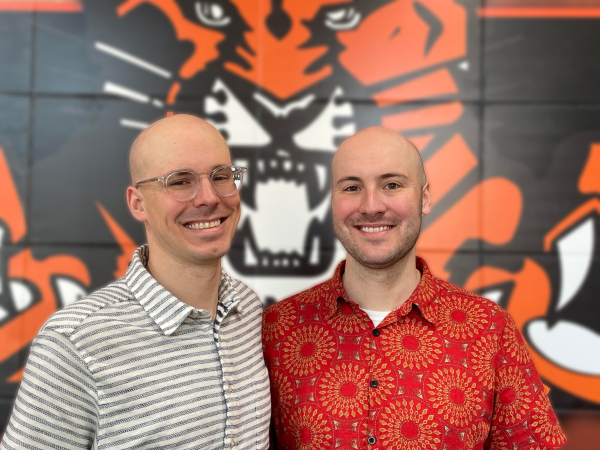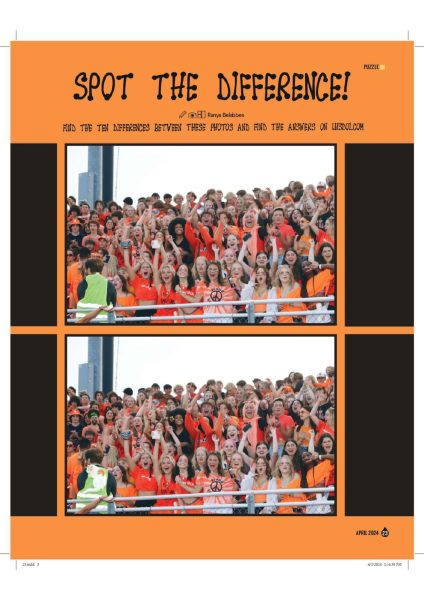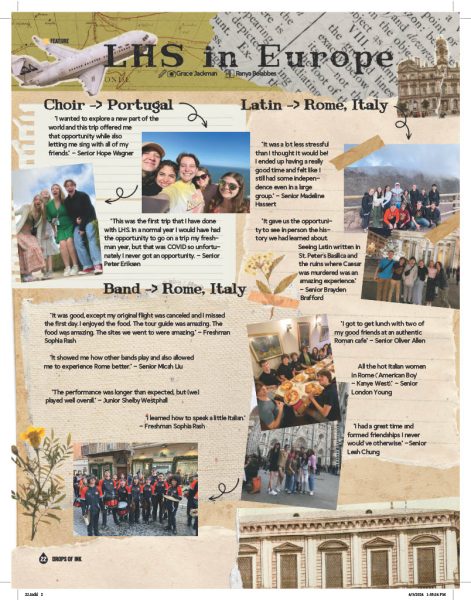The power in a name
From a young age, many students around the United States face the infamous question during roll call: ‘Do you have another name or nickname you prefer to go by?’ While some answer with a simple ‘No’, others may have a more complicated response. Names are part of our identity. They can be a reflection of religion, culture or origin. Names are our own and are distinctively unique to us, but not everyone chooses to use the first name they were legally given. A name may hold a special significance, especially if you are an immigrant, or even the child of one. Many students in our school have unique names derived from cultures all around the world.
A Reflection of Culture
Senior Prajna Penmetsa was born in Hyderabad, India and lived there until she was seven years old. She moved back to India at age 13 and returned to Libertyville once again during her junior year.

Although her first name is Lakshmi, meaning goddess of wealth and good fortune in Telugu, her family always referred to her by her middle name, Prajna. In both Hyderabad and Libertyville, she noticed that nobody had her name. It was unique to her.
“Sometimes I do get the feeling that if I had a simpler name, maybe a more mainstream American name, it might be easier and [life may be] more simple.”
Although Penmetsa refers to herself by her middle name instead of her first name, Lakshmi still holds special meaning to her. In Telugu, Prajna refers to the goddess Saraswati, who represents education, creativity and music.
“I feel like Lakshmi is still a part of who I am,” Penmesta explained. “It’s who I was raised as, and so it’s still very important to me.”
Shifting A Name
Others who aren’t from America sometimes choose to change their names to more Westernized versions of their names.
It is not uncommon for immigrants to change their name when they move to the United States. Dating back to the mid 1800s, Western Europeans would often change their names to better fit into society and escape from prejudice. Adopting more ‘American’ surnames led to better occupations and better treatment.
According to Costanza Blavaschi, an associate professor at the Norwegian University of Science and Technology, 33% of immigrants to the United States changed their given names within the first years of their arrival. Using numbers from 2018, this means that 31,860 people changed their names.
Similar to Penmetsa, senior Stanley Zhu also uses a different name. However, unlike Penmetsa, Zhu’s first name is not the name he goes by in school. His birth name is Xiheng but he goes by Stanley.
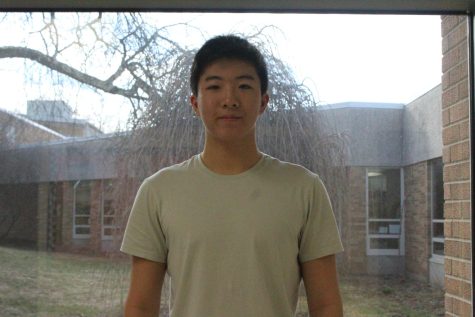
“Both of my parents were Masters of Business Administration at the time [I was born] and they named me after the bank, Morgan Stanley,” stated Zhu.
Xiheng, Zhu’s first name, which is derived from Chinese culture, means unpredictable, adorable and confident. Depending on Zhu’s environment, the name he uses changes.
“When we’re speaking Chinese, I use my Chinese name, and when we speak English, I use my English name,” Zhu explains. “I don’t really do it consciously, but my parents [refer to me by a different name]. In kindergarten, my parents introduced me to my teacher as Stanley and it’s kind of just been that way since.”
The researchers sent the exact same resumes to help-wanted ads in both Chicago and Boston newspapers, changing only the name, sometimes using an African American-sounding name and sometimes using a white-sounding name. The results showed that applicants with more of a white-sounding name had to send ten resumes to get one call back. On the other hand, those with an African American-sounding name had to send 15 resumes in order to get one call back.
Either way, names have power. For many, it is an important facet of expressing an individual identity. And for those with names many people are unfamiliar with, cultivating a culture of respect and acceptance is important.
“I don’t think anyone here is really prejudiced against [ethnic names],” Zhu said. “So that’s nice. So [if I chose to go by Xiheng] I don’t think I would have been treated differently.”
True to Background
On the other hand, senior Mariam Sheikh has never considered changing her name. Deriving from Arabic, Mariam means virtuous,pious and devoted to God.
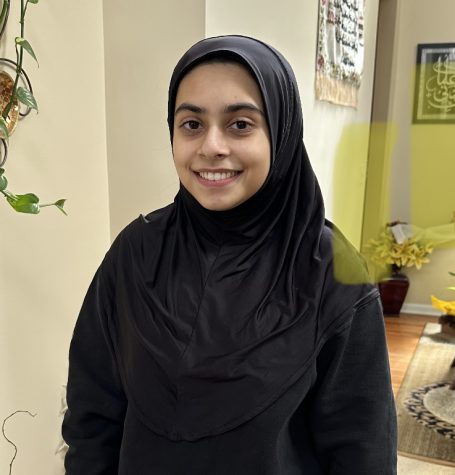
“Mariam, prophet Isa’s mother, is the only woman mentioned in the Quran,” Sheikh said. “She is described as being a dignified woman and is a role model for Muslim women. That reason in and of itself makes me feel honored to share the same name as her.” For Sheikh, choosing to go by her given name was sculpted by the environment she grew up in.
“I would think it depends on how the person grew up,” Sheikh explained. “If they were surrounded with a lot of people who had different ethnic names, I would think that they would like to stick with their name, but if they were surrounded by a lot of white people, they might feel pressure to change their name to something more westernized.”
This practice of adopting white-sounding names to change how one is perceived does in fact exist in the U.S. Studies conducted by the National Bureau of Economic Research found that the ‘white-ness’ of your name may have an effect on how people perceive you.






